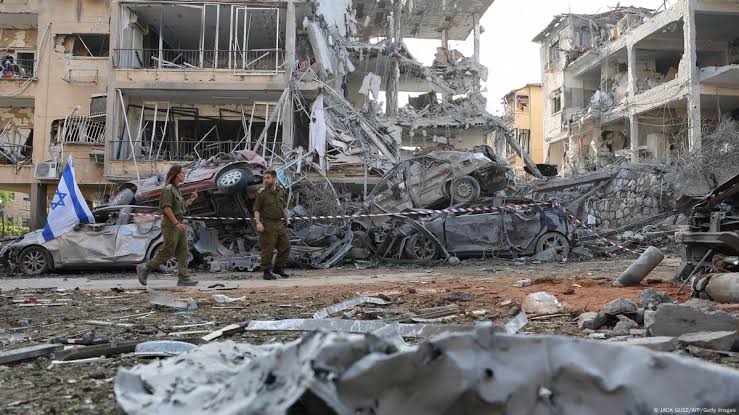A full-blown military conflict is currently unfolding between Israel and Iran, two long-time enemies in the Middle East. What began as a political rivalry has now turned into real warfare with bombs, missiles, and drone attacks exchanged in recent days.
On June 13, 2025, Israel launched a powerful airstrike called “Operation Rising Lion”, targeting more than 100 key locations in Iran, including military bases and even nuclear sites. In response, Iran fired back with over 150 ballistic missiles and drones, targeting Israeli cities like Tel Aviv and Jerusalem.
Now, the whole world is watching — and worried.
Why Should You Care?
You might be wondering, “What does this have to do with me here in Nigeria?”
A lot, actually.
Even though this war is far away, the impact can be felt globally, especially in countries like Nigeria that rely heavily on imports, fuel, and international partnerships.
Let’s break it down.
1. Fuel Prices May Go Up
Nigeria depends on imported fuel despite being an oil-producing country. With the Middle East — especially Iran — being one of the world’s largest oil suppliers, this war could disrupt oil supply and push global oil prices up.
That means:
Fuel at petrol stations may become more expensive
Transportation fares could rise
The price of goods and services may skyrocket (food, medicine, electronics, etc.)
In short: inflation could hit harder.
2. Stock Market and Naira Value May React
Conflict in the Middle East often causes global investors to panic. This could lead to:
Drop in global stock prices
Pressure on the Nigerian Naira
Reduced foreign investment in African markets due to fear of economic instability
3. Travel and International Education Could Be Affected
If the crisis spreads to nearby countries or escalates into a wider war:
International flights may be rerouted or canceled
Students going to countries like Israel, Iran, Jordan, or UAE may face delays or safety concerns
Visa processes could become tougher for travelers in and out of the region.
4. Africa May Be Pulled into Global Politics
African nations, including Nigeria, may be asked to take sides diplomatically. This could affect:
Trade agreements
Military alliances
Foreign aid or partnerships
Already, countries like the U.S., U.K., and Russia are reacting strongly. Any misstep in Nigeria’s diplomatic response could affect international relations.
What Can Nigeria and Africa Do?
1. Prepare for Economic Shockwaves:
The government must prepare for higher fuel import costs and cushion the impact through local refining and subsidies.
2. Diversify Trade Partners:
African countries should reduce over-reliance on Middle Eastern imports and look inward for local production.
3. Promote Peace Diplomatically:
As part of the UN and African Union, Nigeria can join in calling for peace to prevent the war from escalating into a global crisis.
The Israel-Iran conflict might feel far away, but its economic and political effects are already knocking on Africa’s door — especially in fuel prices, foreign investment, and global trade.
This is a wake-up call for African leaders and citizens to stay informed, act wisely, and hope for peace.






